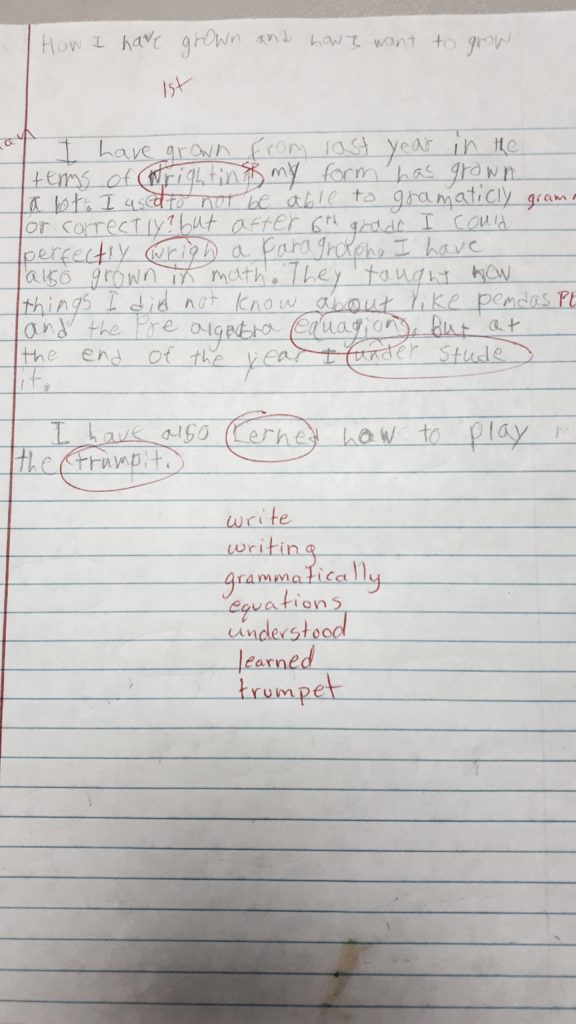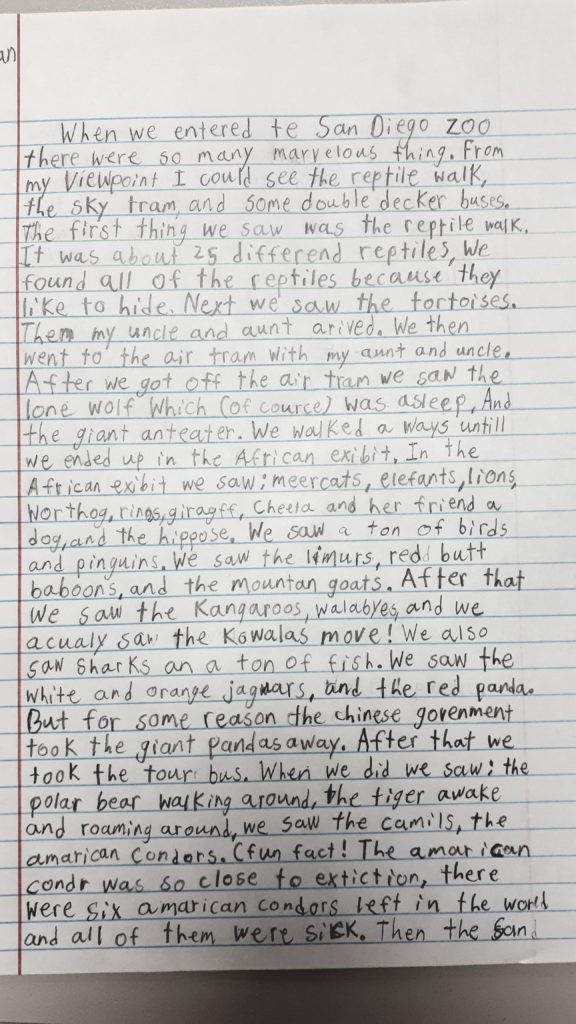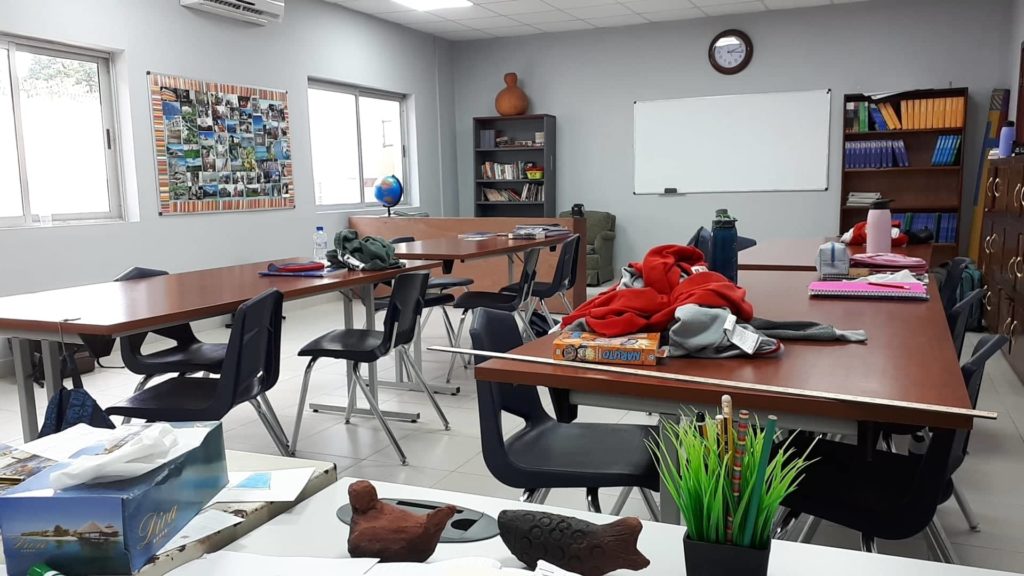Or I guess my real question is has it always been this bad and I just didn’t know it? You see, I went to a high-end private school and received an excellent early education. At the time I didn’t know anything different, so it was just school, and I thought school was school for everyone.
I’ll spare you the long and detailed story of why, but I didn’t go to university until I was in my 30’s and even then, teaching was not my first choice of careers. Heck, it wasn’t my 5th choice but here I am, a teacher.
I didn’t hear the term critical thinking until university. My response was an audible laugh and “you mean thinking???” Everything I had ever been taught about what thinking was was suddenly being called critical thinking…as if there were a different kind of thinking.
Fast forward 8 years. At this point I was working the most amazing, most fulfilling job of my life (and I’ve had a lot of jobs). I was a middle school teacher and I had never, ever been so happy in my life. I had never even imagined life could be so fulfilling.
Sometimes I would encounter things that confused me a bit. Because I was in my mid-thirties but brand new to teaching my boss checked in on me often. One day she wanted to ask me about how I was teaching reading and she used a term I had never heard before: close reading. I told her I had never heard that term before and a look of oh-my-god-what-have-I-done-placing-this-woman-in-a-classroom came over her face.
She explained to me what close reading was and I was like oh! You mean reading. Yeah. I know how to read, and I know how to teach reading. She insisted it wasn’t just reading. It was close reading. I teach a combined class of 7th and 8th graders and we can take up to an hour to read two pages in book. Every time the author uses interesting words, I stop whoever’s reading and we discuss word choice. We discuss figurative speech, symbolism, and theme. We discuss character motivation. We relate what the character is going through in the book to personal experiences my students have had. I don’t just listen to them say the words. I teach them how to read. To read, one must feel and understand the meaning of the words. Other than that, it’s just saying words. So yeah. My students learn how to read.
If teaching a student to understand the meaning behind the words is called close reading, then what the heck is plain ol’ reading? I got my answer to that. A year or so later I had a student in my class that was a very poor reader. This student had a younger sibling and I asked that child’s teacher how she was with reading. The teacher responded fine. She’s a good reader. Now understanding… that’s another thing. She can read the words, but she doesn’t understand what any of the words mean so she doesn’t get anything from it. I just looked at her, cocked my head and said, “so she can’t read?” The teacher responded, “No she can read she just doesn’t understand any of it.”
So here we’ve got a problem with word meaning. I don’t care at all if the kid can pronounce masters level words, if they don’t know what the words mean then they’re not reading. It’s like the word belief. It can mean two different things. If someone asks me, do you believe in the bible. Well, yeah, I believe there is a book called the Bible, but do I believe in the Bible as in it’s the inspired written word of a god? Then no I don’t believe in the Bible.
I couldn’t believe this fellow teacher was telling me a student was a good reader, but she couldn’t understand any of the words. It threw me into a bit of an existential crisis. What are we doing to children if we’re basing their reading level only on whether they can pronounce the words or not?
Another creepy story from education: I had an 8th grader that once several years ago had been held back, so by age he was a year older than his classmates. At the beginning of the year he didn’t know how to multiply. Now I’m not saying he didn’t have his times tables memorized. I’m saying he didn’t understand multiplication. He was 13! How was I supposed to be teaching him pre-algebra if he couldn’t even do basic multiplication?
Everyone at the school but my own husband told me this student was a lost cause. I was told to not even try with him. Just give him a calculator and teach him how to use it. Everyone said if he’s this old and hasn’t learned his times tables by now he never will. My husband was on my side. He believes in me.
The parents were on board. I can’t dismiss for a second how much help they were at home. They worked with him daily and they got a math tutor for him.
I never let the boy slide by even once in the classroom. All year long I expected him to do the same work his classmates did. Yeah, sure, it took him longer than everyone else, but I made him do it. I made him not only memorize his times tables but understand them. Why is this the answer? This goes back to the same issue with reading. I don’t care if a child can spout out math facts to me if they don’t understand what they’re doing and how the answer is what it is then what’s the point?
That student not only learned how to do multiplication he finished my pre-algebra class, moved on to algebra and passed that class too. The boy almost every other teacher I know told me to give up on, the boy everyone said was a lost cause is now thriving in school. The child that was just barely passing any of his classes (and that was with very creative grading) is doing well in in all of his classes now. He needed someone to believe in him and challenge him while everyone but me wanted to give up on him.
One more story: Since I work in an international school environment, I get new to the school students all the time. Their parents were transferred here for some reason or another, they went to school in different country until now, and here they are in my classroom today. By the time they get to me many of my students are attending their 4th or 5th school.
One time I got a new 7th grader (12 years old) that could not write at all. His handwriting was nearly illegible, and his “sentences” were just groups of words on paper. His spelling…oh!…his spelling… any 8-year-old could have done better. It was really shocking.
I spoke with him about it and he told me at his last school they never, NEVER wrote with pen and paper. 100% of their schooling was on laptop. He was completely dependent on spell check and grammar check at all times. He had no idea how to write if given a pencil and a piece of paper. How long had he attended this school? Three years. Ugh. The last time he had held a pencil in his hands was 3rd grade. I confirmed this with his parents. It was true. No pens, no pencils, no paper at his last school. None.
Oh, my goodness! I had a challenge before me. I had to get this kid up to level.
Coincidentally, at the same time someone posted in an international school teachers’ forum I belong to about computers in classrooms. It was a general what do you think about technology in the classroom kind of post. I commented that I’m all for technology in the classroom but sometimes teachers/schools go too far. Then I explained about this student.
Wow! The comments exploded. Everyone told me I was wrong for wanting to teach the student to write. I was told it was a waste of my time. I was told if he was this age and couldn’t write he’d never learn. (I’ve heard that before). I was insulted and numerous people wrote in a condescending way implying I didn’t know what I was doing and the only thing to do for this child was to let him continue to use a laptop in my class.
What bothered me the most was the apathetic lean they all seemed to have. I couldn’t believe how many teachers from schools all around the world were telling me to not waste my time on this child. He was a lost cause.
Is this really what education is?
Here’s a sample of the child’s writing from the first week of school in August.

Here’s a sample from September

And here’s a sample from October

All it took was kindness, understanding, and dedication from me, the teacher. I had a meeting with the parents, we came up with a plan, and we put it in place. The October writing is not perfect but just look at the improvements made in just 7 weeks of school with a teacher that is encouraging? If teachers give up on students or even worse won’t even begin to try with students, then what are we creating for our society? When teachers discourage other teachers from trying to help what are we saying?
Is this what education is these days? Teach to the lowest level and when they can’t even do that just call them a lost cause and ignore them? Has it changed or has it always been this way and I just happened to be one of the luckiest students on earth to have amazing teachers that cared about my education? I was taught to think and to read and that’s what I teach my students to do. I always thought teachers cared and that’s why they did it but I’m not so sure anymore.
My experience in this world of international school teaching has led me to believe a whole lot of people just choose this path as a way to get paid to party all around the world. In between drunken adventures with co-workers they go to the classroom and put in as little effort as possible to save up energy to party again tonight. Even the teachers that aren’t just in it to party still put in minimal effort to try and actually help their students. The really high-level schools only cater to high achievers and kick out the students that don’t make the cut and the other schools have teachers that call children that are a bit behind lost causes.
It’s really depressing. Don’t worry about me. I’m happier than I’ve ever been. I love my job. I love teaching and I love making a difference. Nothing makes me happier than seeing a student that came to me struggling succeed in the end but this isn’t about me. This is about our children and our future. What you should worry about is the fact that I’m pretty sure I’m not the norm. I’m the outlier and that’s not good.
